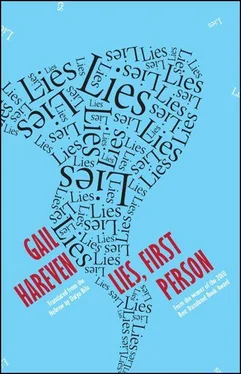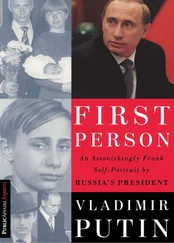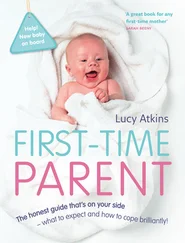Quick to react, he jumped in between us, but too late; the reaction came too late. Aaron Gotthilf had searched for and found me, he knew my private phone number and my married name, which had often, too often, appeared in the newspaper. His thoughts were occupied with me, his desires pawed me, and he could do it again whenever he wanted to.
I went on sitting when Oded got up to stand behind me and put his arms around me, but I didn’t lean back.
“What did he say?” I demanded. The embrace that restricted my movements made me feel uncomfortable.
“It seems he’s on his way to Israel,” Oded sounded apologetic, “it seems that some idiots or other have invited him to a conference. He said that he’d very much like for you to agree to meet him. And I say, listen, Elinor, what I say is this: I say let’s just forget about him, let’s forget about this phone call. That man and his conference — they’re not relevant to anything.”
“Did you understand what he wants?” I removed one of his arms from my breasts.
“What he wants? I don’t know. He was. . not exactly equivocal, cautious I’d say. He mentioned his grandchildren, he has a couple of grandkids in New York. You know what, I think, yes, I think that somehow he wants a connection with us. However incredible it sounds, he wants a connection. He repeated twice that he’s already an old man.”
“I don’t want to hear it,” I said and removed Oded’s other arm. “It’s not relevant.”
“No,” he echoed, “that person is no longer relevant.”
“Stop calling him a person,” I corrected him. “He’s not a human being at all, and I don’t want to hear anything about him because it’s got nothing to do with anything. Just remember that I’ll never, ever, not even when he’s dead, forgive him for existing.”
Oded says that I brought up the rape the first time I went out with him. But I remember clearly that the subject didn’t come up on the first date, only on the third, and argue that his memory is changing the order of events for dramatic effect. In any case, there is no disagreement between us regarding the scene that followed.
I told him whatever I told him — not much — and then I said: “That’s it. That’s what happened. Just don’t think that I’m going to tell you anything more about it, go into details, I mean.” And he, in obvious confusion, replied: “Sure. Of course.” And then he asked me: “Why?” Because what else could he say?
“First of all because it’s my sister’s rape, not mine, okay? That’s the first thing. And apart from that. . Never mind.”
“Apart from that — what?”
“Forget it.”
“No, tell me.”
“Apart from that you’re a man. Can you honestly tell me that you never fantasized about rape? Can you tell me that your imagination never wanted, even a little, to look and see? That’s not a real question, so you don’t need to answer it.”
It wasn’t fair. It wasn’t fair at all. Oded Brandeis, salt of the earth, black belt in the gifted students track of the University High School, graduate with the distinction of a paratrooper commando unit, volunteer in a legal clinic in the Negev — Oded Brandeis was offended.
We met during the end-of-year exams, and the guy took the evening off to drive me to a spot on top of the Mount of Olives where he had only taken one girl he loved before. He brought a pique blanket for us to sit on and a bottle of white wine, and offered me the nocturnal view as if it belonged to him and he was free to give it away for nothing.
If people in this world got what they deserved he would have given me my marching orders on the spot. After jumping on him like that I deserved to have him cross me off the map. But in our world people don’t get what they deserve, and the sudden ferocity of my attack didn’t prompt him to get rid of me, but somehow made me more interesting in his eyes. Later on, when he dropped me off outside my apartment next to the market, I apologized, and he accepted my apology like an aristocrat: he made the broad, sweeping gesture of a man who can permit himself anything, even a crazy woman, even though it was clear that he was alarmed. Because not only was my ferocity intimidating, but my entire manner of speech. I said: “My sister was raped and she went mad”; “went mad” I said and not “was traumatized” or “suffered a mental breakdown.”
The laws of attraction work deceptively: things are not what they seem. Beneath every marriage contract another document lies hidden, written in invisible ink that only time reveals, and with Oded and me time worked fast on what was hidden from sight.
When we met, Oded was about to complete his studies and was making up his mind whether to do what it was obvious to everyone he would do after he finished making up his mind: first, clerking for Judge Brenner, who was a friend of his father’s, and from there straight to his father’s office to take up his position as the third generation of the firm. But the third generation had, in his words, “second thoughts about the path,” and his thoughts wavered between joining legal aid, changing to studying history, or maybe something else, even more revolutionary, exactly what he didn’t know himself.
When he met me it seemed that he had found his rebellion: a rebellion with spiky hair, a tiger face on its arm, and the exaggerated halo of a kind of desperate kamikaze pilot. Everything about me looked romantic to him: studies leading nowhere in the English Literature department, missing classes, the day I forgot to get out of bed for an exam, the small literary prize I received for a dubious volume of poetry — most of the copies of which I succeeded in destroying in later years. My squalid apartment, the wall I peeled pieces of plaster off, the bits of plaster on the bed, the empty vodka bottles — everything seemed romantic, even my orphaned state was perceived as romantic. I was not the girl suitable to be taken to Friday night dinner with his parents, and precisely for that reason, only a little more than a month after we met, he took me to his parents’ house.
Wise people, Menachem and Rachel, very wise. Is it possible that they read the message in the invisible ink? Did some intuition tell Rachel that the girl in the see-through green tank top with the chopped hair who bit her nails in public till they bled — this girl would give her two grandchildren within the space of three and a half years? And that she would always, always gratefully accept her help in raising them, to the point where their house and ours appeared to be one unit, whose rooms were only accidentally scattered around the town?
Perhaps they were nice simply because it was their nature, certainly Rachel’s nature. And perhaps they considered that any opposition on their part would only fan the flames of their son’s rebelliousness.
Whatever the reason, when I accompanied Oded’s mother to the smell of the pot roast in the kitchen, she took the empty soup bowls from me and put them down, and then, with a twinkle in her eyes she stopped to admire my tattoo: she had never seen one close-up. How beautiful, like an artistic piece of jewelry, even more beautiful, more integrated, definitely more beautiful than jewelry — and with her little hand she stroked my tiger face.
“It suits your arm very well, but tell me, isn’t it awfully painful to have it done?”
Suddenly feeling faint from the smell of the food I shrugged my shoulders, and she, without removing her hand, added something jovial about how much we women were prepared to suffer for the sake of beauty, perhaps it was a question of education, but what could we do? That’s the way we were. She too would like to have a cute little tiger like mine, but she was too old already, and anyway she lacked the courage.
Читать дальше












